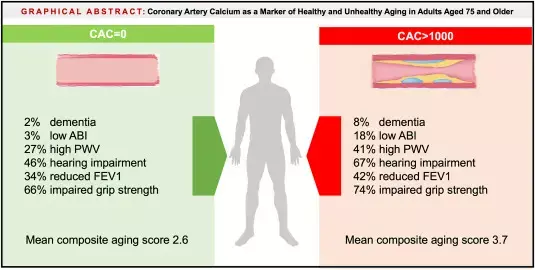- Home
- Medical news & Guidelines
- Anesthesiology
- Cardiology and CTVS
- Critical Care
- Dentistry
- Dermatology
- Diabetes and Endocrinology
- ENT
- Gastroenterology
- Medicine
- Nephrology
- Neurology
- Obstretics-Gynaecology
- Oncology
- Ophthalmology
- Orthopaedics
- Pediatrics-Neonatology
- Psychiatry
- Pulmonology
- Radiology
- Surgery
- Urology
- Laboratory Medicine
- Diet
- Nursing
- Paramedical
- Physiotherapy
- Health news
- Fact Check
- Bone Health Fact Check
- Brain Health Fact Check
- Cancer Related Fact Check
- Child Care Fact Check
- Dental and oral health fact check
- Diabetes and metabolic health fact check
- Diet and Nutrition Fact Check
- Eye and ENT Care Fact Check
- Fitness fact check
- Gut health fact check
- Heart health fact check
- Kidney health fact check
- Medical education fact check
- Men's health fact check
- Respiratory fact check
- Skin and hair care fact check
- Vaccine and Immunization fact check
- Women's health fact check
- AYUSH
- State News
- Andaman and Nicobar Islands
- Andhra Pradesh
- Arunachal Pradesh
- Assam
- Bihar
- Chandigarh
- Chattisgarh
- Dadra and Nagar Haveli
- Daman and Diu
- Delhi
- Goa
- Gujarat
- Haryana
- Himachal Pradesh
- Jammu & Kashmir
- Jharkhand
- Karnataka
- Kerala
- Ladakh
- Lakshadweep
- Madhya Pradesh
- Maharashtra
- Manipur
- Meghalaya
- Mizoram
- Nagaland
- Odisha
- Puducherry
- Punjab
- Rajasthan
- Sikkim
- Tamil Nadu
- Telangana
- Tripura
- Uttar Pradesh
- Uttrakhand
- West Bengal
- Medical Education
- Industry
Higher CAC scores among older adults linked to aging indices and aggregate aging scores, finds study

Higher CAC scores among older adults linked to ageing indices and aggregate ageing scores suggest a study published in Atherosclerosis.
Coronary artery calcium (CAC) is validated for risk prediction among middle-aged adults, but there is limited research exploring the implications of CAC among older adults. We used data from the Atherosclerosis Risk in Communities (ARIC) study to evaluate the association of CAC with domains of healthy and unhealthy ageing in adults aged ≥75 years. They included 2,290 participants aged ≥75 years free of known coronary heart disease who underwent CAC scoring at study visit 7. We examined the cross-sectional association of CAC = 0, 1-999 (reference), and ≥1000 with seven domains of ageing: cognitive function, hearing, ankle-brachial index (ABI), pulse-wave velocity (PWV), forced vital capacity (FVC), physical functioning, and grip strength. Results: The mean age was 80.5 ± 4.3 years, 38.6% male, and 77.7% White. 10.3% had CAC = 0 and 19.2% had CAC≥1000.
Individuals with CAC = 0 had the lowest while those with CAC≥1000 had the highest proportion with dementia (2% vs 8%), hearing impairment (46% vs 67%), low ABI (3% vs 18%), high PWV (27% vs 41%), reduced FVC (34% vs 42%), impaired grip strength (66% vs 74%), and mean composite abnormal aging score (2.6 vs 3.7). Participants with CAC = 0 were less likely to have abnormal ABI (aOR:0.15, 95%CI:0.07-0.34), high PWV (aOR:0.57, 95%CI:0.41-0.80), and reduced FVC (aOR:0.69, 95%CI:0.50-0.96). Conversely, participants with CAC≥1000 were more likely to have low ABI (aOR:1.74, 95%CI:1.27-2.39), high PWV (aOR:1.52, 95%CI:1.15-2.00), impaired physical functioning (aOR:1.35, 95%CI:1.05-1.73), and impaired grip strength (aOR:1.46, 95%CI:1.08-1.99). The findings highlight CAC as a simple measure broadly associated with biological ageing, with clinical and research implications for estimating the physical and physiological aging trajectory of older individuals.
Reference:
Obisesan OH, Boakye E, Wang FM, Dardari Z, Dzaye O, Cainzos-Achirica M, Meyer ML, Gottesman R, Palta P, Coresh J, Howard-Claudio CM, Lin FR, Punjabi N, Nasir K, Matsushita K, Blaha MJ. Coronary artery calcium as a marker of healthy and unhealthy aging in adults aged 75 and older: The Atherosclerosis Risk in Communities (ARIC) study. Atherosclerosis. 2024 Feb 13:117475. doi: 10.1016/j.atherosclerosis.2024.117475. Epub ahead of print. PMID: 38408881.
Dr. Shravani Dali has completed her BDS from Pravara institute of medical sciences, loni. Following which she extensively worked in the healthcare sector for 2+ years. She has been actively involved in writing blogs in field of health and wellness. Currently she is pursuing her Masters of public health-health administration from Tata institute of social sciences. She can be contacted at editorial@medicaldialogues.in.
Dr Kamal Kant Kohli-MBBS, DTCD- a chest specialist with more than 30 years of practice and a flair for writing clinical articles, Dr Kamal Kant Kohli joined Medical Dialogues as a Chief Editor of Medical News. Besides writing articles, as an editor, he proofreads and verifies all the medical content published on Medical Dialogues including those coming from journals, studies,medical conferences,guidelines etc. Email: drkohli@medicaldialogues.in. Contact no. 011-43720751


